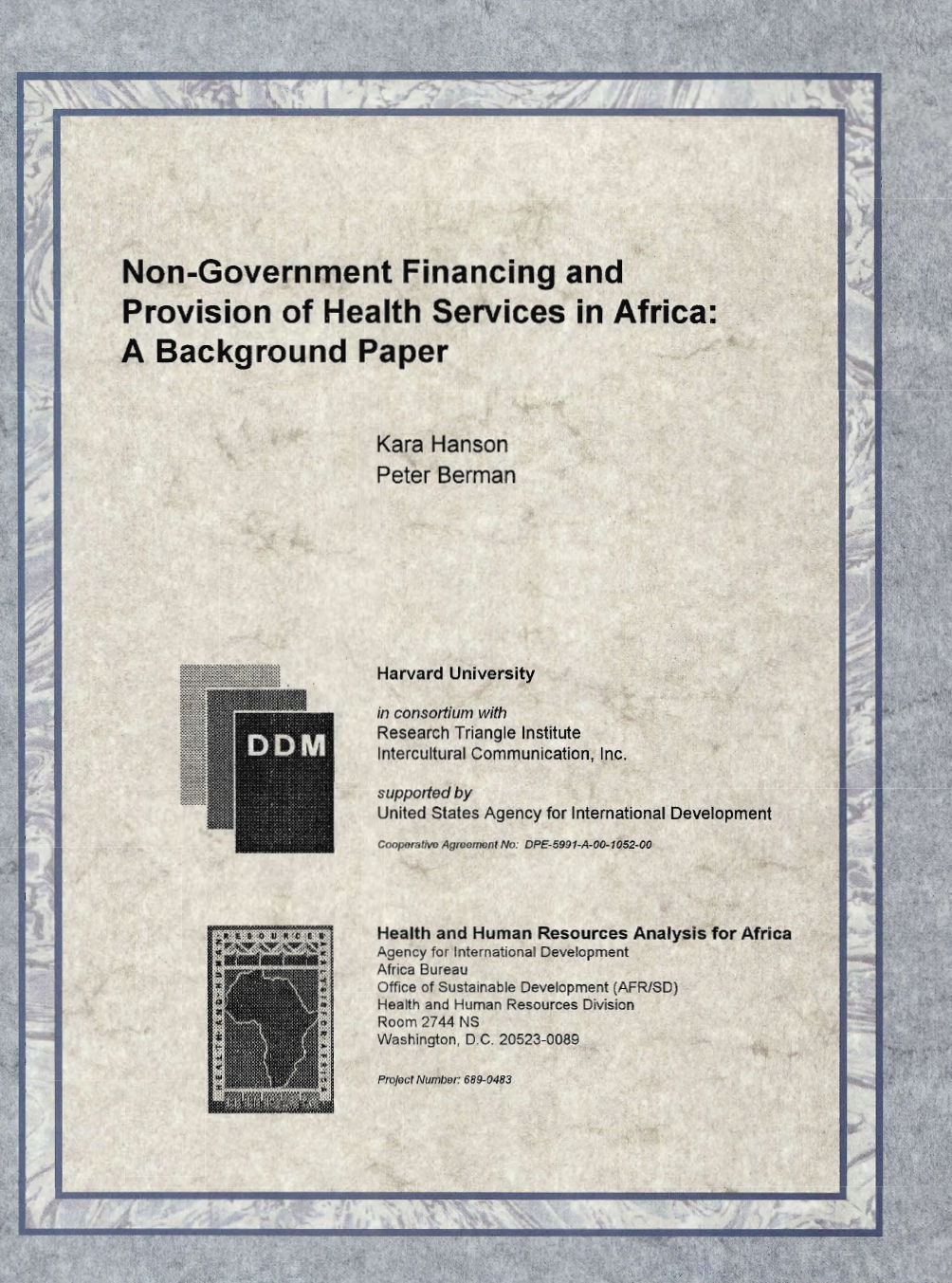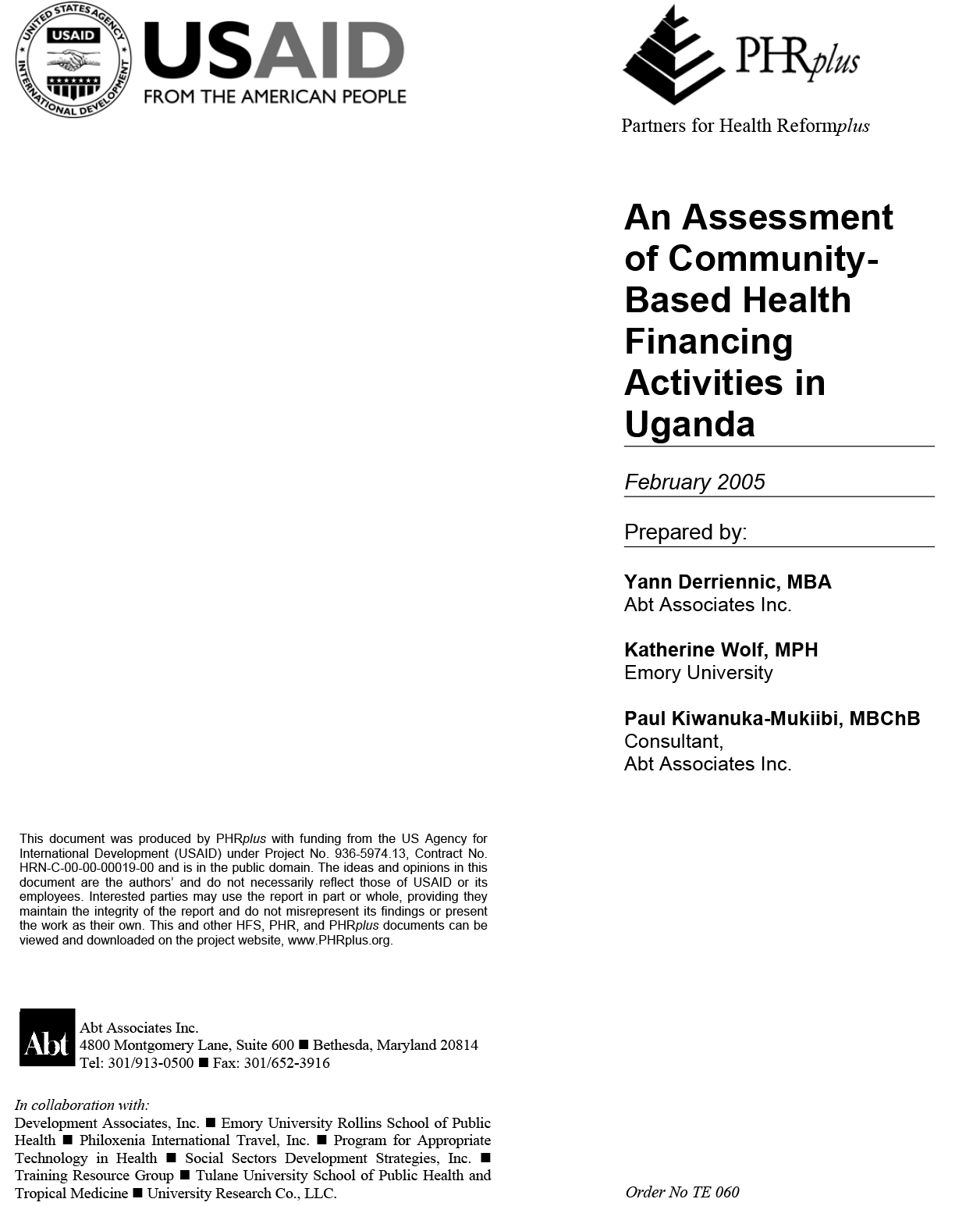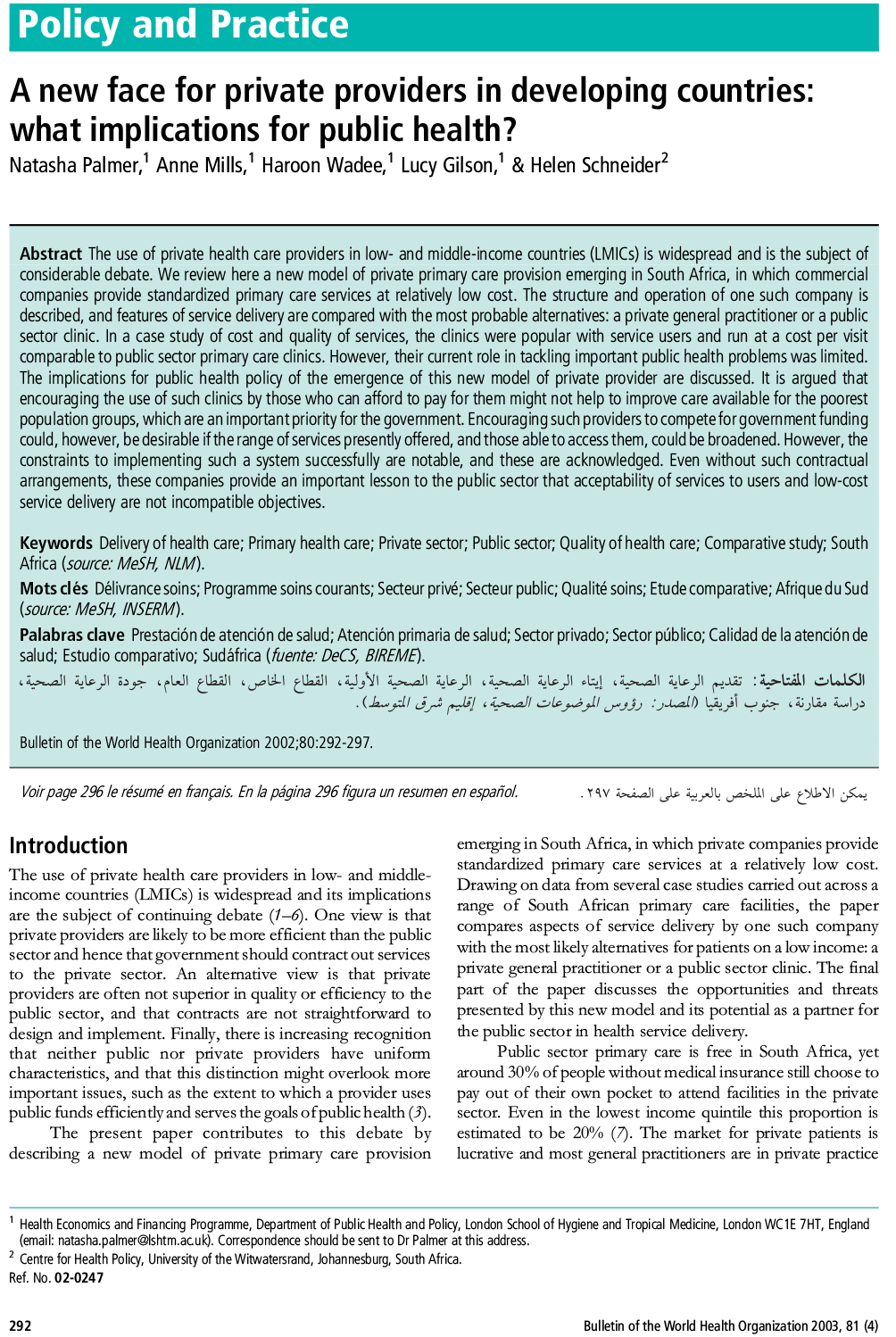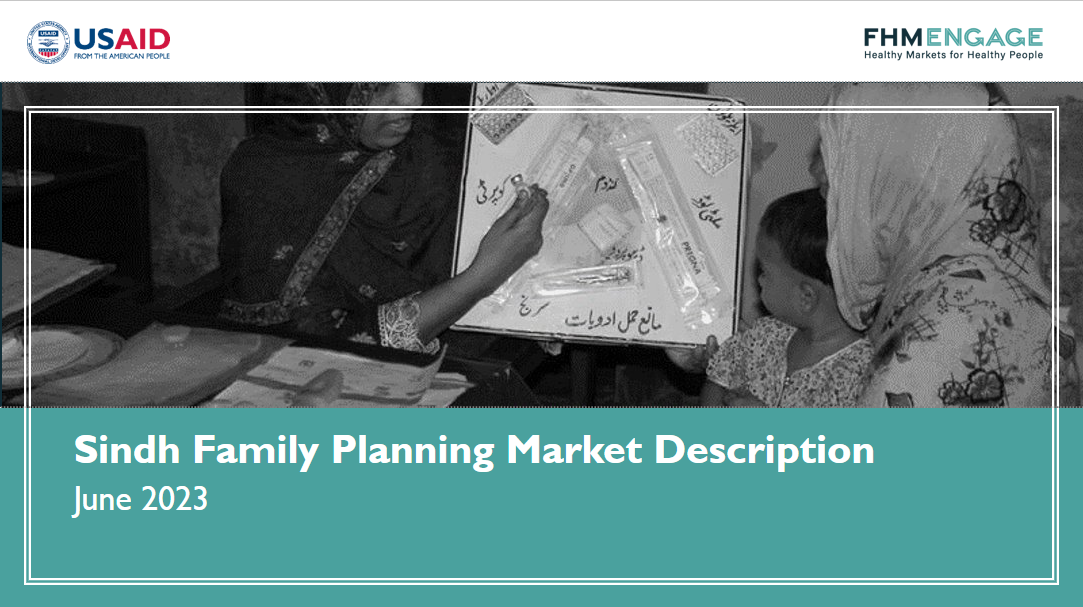
Resource Library
Featured Resources
All Resources

Public-Private Partnerships for Health: A Review of Best Practices in the Health Sector
Public-private partnerships (PPPs) have evolved as a result of pressure to ensure quality in providing public services. PPPs pool public and private resources, and capitalize on the skills of the respective sectors to improve the delivery of services. Today, PPPs in the health sector focus on…
Resource Type : Other
Country :
Health Area:
Project: SHOPS
Year :
Language : English
Technical Area: Public-Private Engagement

Keystone Module Background Paper: Private Participation in Health Services Handbook
Attitudes toward private health care providers in developing countries are changing. Growing numbers of policymakers are considering or attempting to incorporate private facilities and practitioners into overall sector policy, using methods such as contracting, training of private practitioners…
Resource Type : Tool
Country :
Health Area:
Project: SHOPS
Year :
Language :
Technical Area:

Public-Private Partnerships for Public Health
In April 2000, the Harvard School of Public Health and the Global Health Council organized a small workshop outside Boston to examine questions about public-private partnerships in international public health. The workshop was just one in a series of meetings on public-private partnerships…
Resource Type : Other
Country :
Health Area:
Project: SHOPS
Year :
Language : English
Technical Area: Public-Private Engagement

Non-Government Financing and Provision of Health Services in Africa: A Background Paper
Recent years have seen a growth in interest in what has often been termed the "public/private mix" in health services. Particularly in developing countries this focus has stemmed from a desire to increase and make better use of the total resources available to the health sector. The motivation…
Resource Type : Other
Country :
Health Area:
Project: SHOPS
Year :
Language : English
Technical Area: Health Financing, Public-Private Engagement

Evaluating the private sector potential for franchising TB and HIV/AIDS diagnosis and care in Sub-Saharan Africa: Overview Report
This study was undertaken by the Institute for Health Sector Development (IHSD) on behalf of WHO and the Rockefeller Foundation to identify the potential for franchising TB and HIV/AIDS diagnosis and care to mid-level private health care providers in the following nine Sub-Saharan African…
Resource Type : Other
Country :
Health Area:
Project: SHOPS
Year :
Language :
Technical Area:

Reproductive Health in Today's World: Franchising Reproductive Health Services
Objectives. Networks of franchised health establishments, providing a standardized set of services, are being implemented in developing countries. This article examines associations between franchise membership and family planning and reproductive health outcomes for both the member provider and…
Resource Type :
Country :
Health Area:
Project: SHOPS
Year :
Language :
Technical Area:

The greenstar Franchise Network, Pakistan
This case study describes the Green Star franchise network project in Pakistan in the following sections: project description, context, content and scale, assessment, wider context, and feasibility for scaling up.
Resource Type :
Country :
Health Area:
Project: SHOPS
Year :
Language :
Technical Area: Networks and Franchising

An Assessment of Community-Based Health Financing Activities in Uganda
The Partners for Health Reformplus Project (PHRplus), in conjunction with the Uganda Community Based Health Financing Association (UCBHFA), conducted an assessment of community-based health financing (CBHF) schemes in Uganda. The purpose of the assessment was to identify good practices/models…
Resource Type : Report
Country :
Health Area:
Project: SHOPS
Year :
Language : English
Technical Area: Health Financing

A New Face for Private Providers in Developing Countries: What Implications for Public Health?
The use of private health care providers in low- and middle-income countries (LMICs) is widespread and is the subject of considerable debate. We review here a new model of private primary care provision emerging in South Africa, in which commercial companies provide standardized primary care…
Resource Type :
Country :
Health Area:
Project: SHOPS
Year :
Language : English
Technical Area: Provider Quality

The Potential Market for Expanded Private-Sector Family Planning in the Philippines
The Philippines, with a population of 80 million and an annual growth rate of 2.36 percent, had 3.2 million women using modern family planning methods in 1998. This number is projected to grow to 5.8 million by 2007. Seventy-two percent of users obtain their contraceptives from the public sector…
Resource Type : Report
Country :
Health Area: Family Planning
Project: SHOPS
Year :
Language : English
Technical Area: Public-Private Engagement
Pagination
Filter by
What is the Market Development Approach?
- What is the Market Development Approach (MDA) Process for Family Planning, and Maternal, Newborn, and Child Health? Brief #1 of 4 in a series on the MDA
- What is the Market System Framework and Its Role in Developing Family Planning, and Maternal, Newborn, and Child Health Markets? Brief #2 of 4 in a series on the MDA
- What are Key Terms Used in a Market Development Approach for Health? Brief #3 of 4 in a series on the MDA
- The Meaning and Importance of Stewardship in Developing Family Planning, and Maternal, Newborn, and Child Health Markets. Brief #4 of 4 in a series on the MDA
FHM Engage Market Descriptions
See all market descriptions here.





